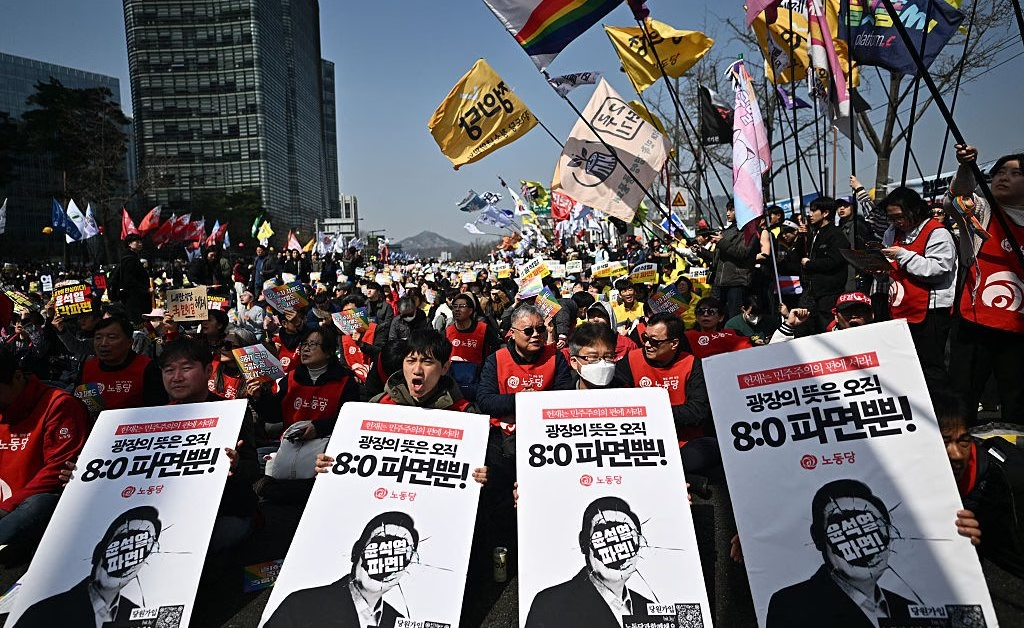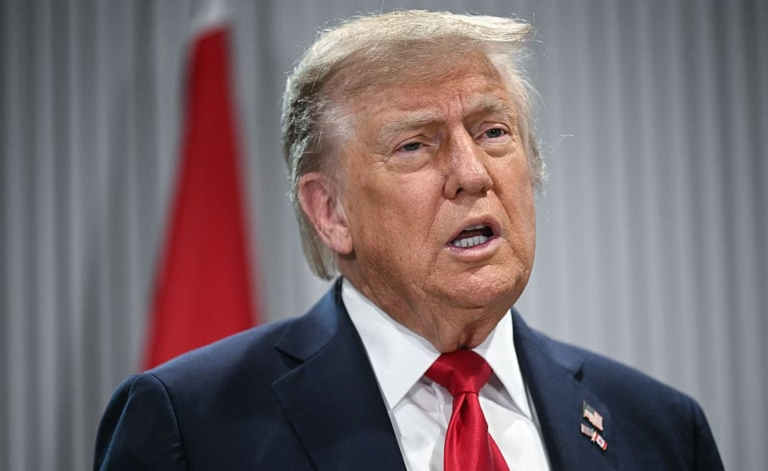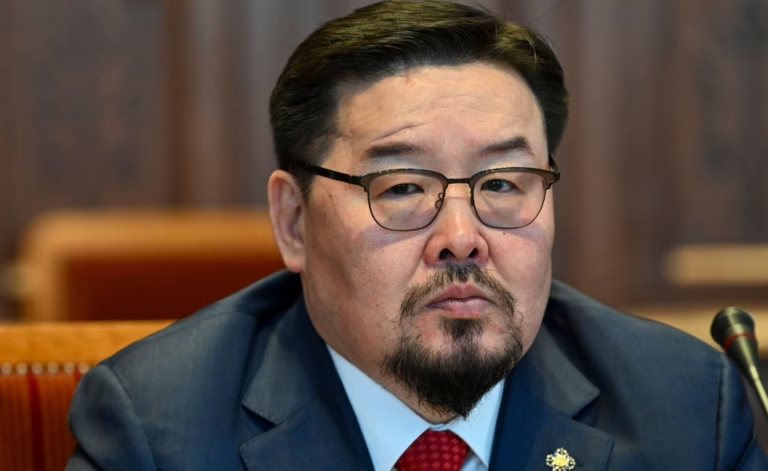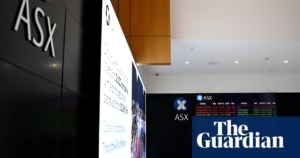Just under a year ago, Yoon Suk-yeol was serenading guests at a White House state dinner with a rendition of Don McLean’s “American Pie.” Fast forward to Friday: South Korea’s former President was forced to eat his words after his impeachment over an earlier martial law declaration was confirmed by the nation’s Constitutional Court. Yoon is the first President in South Korean history to face criminal charges while still in office.
In delivering the verdict, Chief Justice Moon Hyung-bae said Yoon “violated his duty as the nation’s commander-in-chief” when he sent troops to the National Assembly in December. In response, Yoon’s People Power Party (PPP) “humbly” accepted the decision.
What initially appeared to many outsiders as a straightforward case dragged on for 15 weeks—the longest ever in a country with a history of presidential impeachments—amid mass protests and political inertia that has proven especially debilitating as U.S. President Donald Trump launches a global trade war.
On Thursday, Washington imposed 25% tariffs on South Korean exports to the U.S., prompting acting President Han Duck-soo to vow an “all-out” response. Last year, South Korea exported cars worth $34.74 billion to the U.S., accounting for 49% of all its auto exports. The country must now hold an election within 60 days, and diffusing trade tensions will surely be a priority for the new administration.
How Asia’s fourth-largest economy got to this point still has many scratching their heads. On Dec. 3, President Yoon declared martial law, citing the opposition-controlled National Assembly as a “monster” that was infiltrated by anti-state elements allied to North Korea and had “paralyzed” his government. The move ignited turmoil: 190 out of a total of 300 lawmakers battled through special forces cordons to enter parliament and vote to repeal the declaration just six hours later. In the streets outside, tens of thousands of ordinary South Koreans demanded Yoon’s resignation. Although Yoon’s PPP blocked the parliament’s first impeachment attempt, a second on Dec. 14 was ultimately successful.
Koreans are still unsure what Yoon was trying to achieve. A self-described populist, the former prosecutor general had struggled to enact his agenda due to a minority government that made it difficult to pass legislation, including a budget. His shaky position was further compromised by a series of scandals. Then, accusations surfaced that a political broker had allegedly forged deals with Yoon, his wife, and party colleagues to influence elections. Despite Yoon’s steadfast denials, these allegations fueled widespread protests calling for his ouster.
Yoon then resorted to a political Hail Mary: autogolpe, or a self-coup, by imposing martial law. After that gambit failed, authorities attempted to detain him on Jan. 3, which failed when he refused to leave his armed guard-fortified residence. He surrendered to prosecutors who visited again with even more police officers on Jan. 15. But he was released from detention on March 8 and appeared defiant to supporters, expressing gratitude to the Seoul Central District Court for correcting an illegality.
Despite the bizarre nature of the episode to outsiders, the checks and balances in South Korea ultimately held firm. Martial law was swiftly lifted, and key institutions managed to avoid bloodshed by exercising restraint. The Constitutional Court’s extended deliberation and decision served as a check on the government’s power.
However, the country’s young people—especially young men—feel their interests are at stake amidst the chaos. Yoon’s weaponizing of anti-feminist rhetoric to gain support from disenfranchised young men and the perception that compulsory national service puts them at a disadvantage compared to their female peers have deepened divisions. How the country heals and moves forward remains another significant challenge.
South Korea’s likely next President is Lee Jae-myung, who Yoon narrowly defeated in 2022 and who led the impeachment charge. When martial law was imposed, Lee defied the military blockade by livestreaming himself climbing the National Assembly fence on his YouTube channel. However, elections alone are no panacea for the deep divisions in South Korean politics, which for decades have been split along Cold War lines.
As the political landscape continues to evolve, there is hope for democratic reform in South Korea in the near future.
Source: https://time.com/7274736/south-korea-constitutional-court-confirms-impeachment-president-yoon-suk-yeol/








